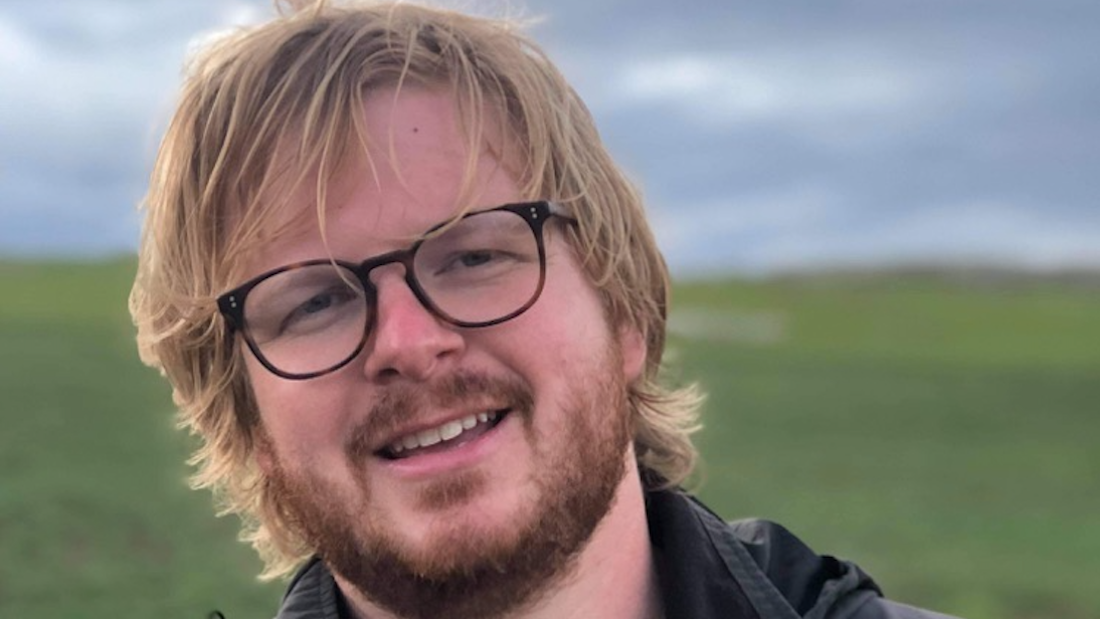
William Sebastian Turner brings WA to international stage with short film Esperance to Fremantle
Australia’s largest Short Film Festival, Flickerfest, returns to Perth this month, screening at Luna Outdoor Cinema from Thursday, February 29 to Saturday, March 2, with tickets on sale now. It all kicks off on Thursday night with an evening of Australian short films that shine a spotlight on the incredible talent in our industry with a host of stories honouring our unique identity and culture. One of the films representing Western Australia in this year’s programme is Esperance to Fremantle, which tells the story of a wayward teenager, Rob, who having not seen his father since he was an infant, searches for him in Fremantle, resolving to approach him as if he were a stranger in order to discover who he really is and his reasons for leaving. BRAYDEN EDWARDS spoke to writer and director William Sebastian Turner to find out about the story behind the film and his own filmmaking career.
Congratulations on the release of your new short film, Esperance to Fremantle. How long has the idea for this film been in the works, and how does it feel to reveal it to the world?
Thank you! It is actually an idea that I had and wrote a first draft of in the first semester of my filmmaking master’s program all the way back in 2018. At that stage, we were making shorter and smaller films, so I decided to file it away for a later date.
As the program progressed, I revised and workshopped it a number of times. As I did, the script became stronger and stronger. When it came to finally releasing the film and getting such a great response, it was a huge relief and felt like a testament to how far I had advanced as a writer and director since starting my filmmaking journey.
Where did the idea for this story come from? Do you have any personal connection to those famous Western Australian locations?
The idea came from several different origins, but generally, while I was studying on the other side of the world at Columbia University in New York, I ironically found myself drawn to writing more and more Western Australian stories.
As with most Perth people, I’ve spent years going down south and exploring our incredible coastline. I feel like doing so is a quintessential part of growing up in WA. The fact that my dad grew up in Cowaramup has only deepened my interest in the region.
As the script developed, where the character of Rob came from progressively shifted further south. I wanted it to feel like he had been on a bigger and bigger journey to track Tom down. I was also drawn to Esperance because I think it is the epitome of Western Australia’s natural beauty, and I wanted that to be a counterpoint to a very industrial depiction of Fremantle. I wanted Rob to desperately want to know what would make Tom throw away his idyllic life in Esperance for a reclusive life amongst the industrial and urban landscape of Fremantle.
You weren’t always on the career path to becoming a filmmaker. Do you remember when and why you decided to leave your previous career as a lawyer behind and pursue filmmaking instead?
I have always been obsessed with film and television, and towards the end of school, it was something I dreamed of pursuing. However, at least for me, pursuing filmmaking in Perth felt like a distant, unrealistic hoop dream.
Instead, I ended up dragging myself through law school. But my heart was just not in it. It was not until I was fortunate enough to go on a university exchange to Denmark that my decision to pivot into filmmaking was galvanised. With Denmark’s progressive social system, university is not just free; the government also gives students monthly payments to attend.
I found that Danish students tended to pursue what they were truly passionate about, and that, on the whole, it led to them being more content and happy. After that, I realised that the answer to career satisfaction was obvious: to pursue what I loved: filmmaking.
And what are some of the most unexpected places that your career has taken you since?
If it was not obvious from my previous answer, I am clearly a big fan of Denmark! The year that I lived there, I learned about a folkhøjskole (a uniquely Danish form of technical college) dedicated to living and breathing filmmaking called the European Film College. So after becoming a lawyer, I actually went back to Denmark for a year. However, this time it was not to the big smoke, Copenhagen. Instead, it was a tiny coastal town called Ebeltoft in rural Jutland!
Since then, I’ve had opportunities to work on sets in many unexpected and incredible locations. To name a few, I’ve shot on Fire Island off the coast of New York; the same Californian ranch where they shot NOPE, only it was covered in snow; and a French farmhouse where I ended up having to quarantine after getting COVID for the second time!
You’ve recently been based in LA. Are there many other Australians in the film industry over there? And how do you feel Australian films are going at shaping their own identity on the world stage?
Yes, towards the end of my thesis year for my master’s, I moved from New York to LA with two great friends from the program. It just so happened that when we finally graduated, we did so straight into the WGA and SAG-AFTRA strikes, which was not exactly ideal timing.
Los Angeles is an incredibly multicultural city, and there are many Australians working in the film industry over there. I think we Aussies are proud of our own industry and champion our films when we can. I think many of us would agree that it is a difficult balancing act sometimes.
Obviously, we all want to throw all of our energy into the opportunities that Hollywood and US indie cinema present. However, speaking from my own experiences, I know that I am also always trying to keep part of my focus on the Australian industry and developing Australian projects.
I think that cinema generally is becoming less dominated by Hollywood, with film and TV from the likes of South Korea, India, Germany, and, of course, Australia making some waves globally, including within the US itself.
As a byproduct of that, I think films from around the world are less compelled to pander to US cinemagoers, and instead, they can focus on being more authentic. I cannot tell you how great it felt to watch Talk to Me in a packed LA cinema with a friend from Texas who had to lean into my ear and ask me to translate the authentic Australian slang for him!
Of course, this wouldn’t have been possible without a team to make it happen. Who else was part of this project that helped bring this film to life?
When I finally pulled myself free of law school, I felt like I needed a sea change too. The problem was that I ended up doing all of my film studies abroad. Because of that, when I first got back to Perth to shoot Esperance to Fremantle, I could not help but feel daunted about building a local crew. At that stage, it was just me and my US-based producer and collaborator, Patrick Nichols.
Fortunately for me, my brother’s childhood best friend, Joe Henderson, happened to be not only a talented Perth cinematographer but also my only film contact in the city. Joe was excited about the script, and once he came on board, he was an incredible asset to the project. He helped introduce me to a Perth producer, Cameron Whiteford, as well as almost the entire technical crew.
Local casting director, Megan Carpenter, was incredible in helping me find Luke Jai McIntosh and Robert Jackson. They proved to be the perfect leads and were a dream to work with when it came to developing the characters further.
And what did you find to be the most rewarding part of creating the film?
The shoot was probably the most rewarding and fulfilling part of the process because it felt like a real family and community affair. My brother, Alex, came on board to not just help produce but to do production design too. My sister and mum helped with craft services, and my dad, aunt, uncle, and mates all played background roles in the pub scenes.
Two of my closest friends and collaborators from uni, Mathilde Hauducoeur (assistant director) and Dhruv Sud (scripty), both flew all the way from New York to help on the set. I was not just lucky with the assembled team being my nearest and dearest, but we also got perfect weather the whole time, and the shoot went off without a hitch!
What is next for you? Do you have any more projects in the works that we can keep an eye out for?
I am currently in development on my first feature, Flooded Mine. Think of it as Fargo meets WA. It is a comedy thriller about two Perth teenagers getting in way over their heads when things go awry after robbing their weed dealer.
I am also writing an action thriller for an LA production company. The fairly wild narrative is on a bigger scale than what I typically write, so that is exciting!
If you want to catch the next screening of Esperance to Fremantle, it is playing this Thursday at Luna Leederville as part of Flickerfest’s Best of Australian Shorts block!
